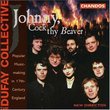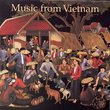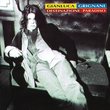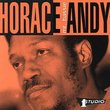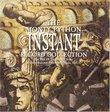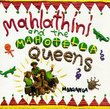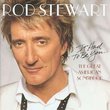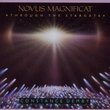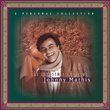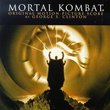| All Artists: Jonas Gwangwa Title: Cry Freedom: Original Motion Picture Soundtrack Members Wishing: 2 Total Copies: 0 Label: Mca Original Release Date: 11/6/1987 Re-Release Date: 10/25/1990 Album Type: Soundtrack Genres: Pop, Soundtracks Style: Number of Discs: 1 SwapaCD Credits: 1 UPCs: 076732622445, 076732622421 |
Search - Jonas Gwangwa :: Cry Freedom: Original Motion Picture Soundtrack
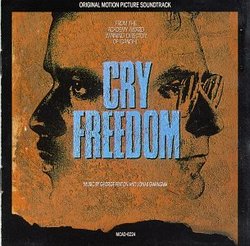 | Jonas Gwangwa Cry Freedom: Original Motion Picture Soundtrack Genres: Pop, Soundtracks
|
Larger Image |
CD DetailsSimilar CDs
Similarly Requested CDs
|
CD ReviewsA Study of Loss Daniel McInnis | Toledo, OH United States | 05/25/2004 (5 out of 5 stars) "The criticism I've heard when this movie is being discussed has always bothered me to some degree. The knock against it is that Denzel Washington is so strong in the role of Steve Biko, and he himself was such an important figure in South African history, that he deserves a movie of his own. Now, while I agree with this assessment, and hope that maybe a Djimon Hounsou or Chiwetel Ejiofor will revisit the role at some future date, I can't help but feel that these people are judging the movie for what they wanted it to be, and not what's actually up there on the screen. Not only that, but I feel that the loss of Biko midway through the film actually serves a purpose. And that purpose is, by the final half-hour, when we're privileged enough to have a few flashbacks of him, we realize what a loss he has been to the movie, and to the world. So by having him cut out of a good portion of the film, we're made to grieve his death while the movie continues to soldier forward. Oh, and by the way, it's not like that second half is a dog, either. It's just not quite as good as the first. I mean, if this movie were cut in two (ala "Kill Bill"), we'd being saying that part one was brilliant, while part two was merely very good. And considering that the 80's were hardly a golden age for Hollywood, that ain't bad. Now, getting back to Denzel, this is not only the best performance of his career, but possibly one of the greatest ever captured on celluloid, and I find it deeply disconcerting that he didn't win an Academy Award for this performance while he was honored for a menial role in "Training Day" (I'll post a review later explaining my opinion). Not only that, but why, dare I ask, was he nominated in a supporting role, when the Golden Globes acknowledged him as a leading man? Sure, his character was murdered an hour and a half into the movie, but Anthony Hopkins had no more of a lead in "Silence of the Lambs" than Denzel was here. I hate to cry racism against "liberal" Hollywood, but how else can you explain this, along with the fact that some of the best performances of recent years, given by black actors, have been overlooked? For example, Delroy Lindo in "Clockers," Giancarlo Espisito in "Bob Roberts," Larenz Tate in "Why Do Fools Fall in Love," and the list just goes on and on. I could probably name 50 more if given the time. Not to mention the fact that Spike Lee has never been nominated for Best Director, not even for "Malcolm X" or "Do the Right Thing," neither of which can be disputed as one of the best films of their respective years. But now I've gone off on a rant, and forgotten to mention Kevin Kline's great supporting work here, and Richard Attenborough, who has yet to top this movie in the seventeen years since it's release. This is also his best work to date, in my opinion, and even tops his much more lauded "Gandhi." Of course, if you're watching this movie for the first time and don't understand why anyone would make such a fuss about it, I challenge you to sit through the closing credits without being moved to tears. It's just a remarkable bit of filmmaking, simple but powerful, and may be the best end credit sequence since Martin Ritt's "The Front."" Denzel IS Stephen Biko! Judy K. Polhemus | LA | 07/29/2008 (5 out of 5 stars) "When I was a high school English teacher and read and discussed "Cry, the Beloved Country" with my seniors, I always showed "Cry Freedom" in conjunction. Students were mesmerized. While the novel was set in South Africa with apartheid partly responsible for the crime that takes place, apartheid is as much a major character as Stephen Biko or Donald Woods in the movie. In case you are confused, "Cry, the Beloved Country" is the lyrical novel by Alan Paton, published in 1948 and set in South Africa, Paton's homeland. Three racial groups, lived together, not in harmony, there: the Dutch, who later called themselves Afrikaaners, who settled there three hundred years earlier and believed they sere sent by God to take control; the English who settled everywhere; and the native groups, of which Bantu was one. This novel is a moving testament to the forgiving nature of men and how two men from totally different worlds can come together in grace and acceptance. In "Cry Freedom," the film based on the nonfiction book by the same name, is a story of Stephen Biko, a black South African political activist who understood the inherent dangers in being an activist but lived by the creed that a man has to do what a man has to do. He is befriended in respect and admiration by a white American journalist, Donald Woods. Their two stories are equally important because of the consequences of their actions. Denzel Washinton performs the role of Biko as if he was Biko--I was that convinced. His South African accent is perfect. I personally believe this is the best acting role of his distinguished career. Kevin Kline is also excellent and performs one of my favorite roles he has ever played. Biko brashly challenges the Afrikanner government and is banned from ever speaking again. He does so, is arrested and tortured into a coma and dies of a brain hemorrhage as he is transported 600 miles away to a hospital. Obviously, the government wanted him dead. The rest of the film details Woods and his family's departure from South Africa, knowing he may be next because of his support of Biko. His escape is important in the Biko story because it is Woods who brings it to print and thus to film. Without Woods we probably would not know the Biko story of courage and dedication to cry for freedom for his people. This is a must-see film. One that mesmerizes 17-year-olds and makes them angry, white and black, at injustice is not a film to miss. Plus the information interspersed during the credits will make you gasp at the sheer audacity and cruelty of man." Old Favorite on Dvd leslies_library | MI United States | 08/13/2004 (5 out of 5 stars) "What a treat to see this beautiful film on dvd. I had seen it on vhs years ago, and recently found and read BIKO by Donald Woods, on which the film was based. The movie stays very close to the book.
For those interested, the book delves much deeper into Biko's life and character, and gives a good summarized history of South Africa. The book also gives more information about the transformation of Woods from a liberal to an activist and the development of their friendship. Denzel's performance is top notch, and the music moving. You will have a lump in your throat at the end. I found the movie even more enjoyable after reading the book and seeing it on dvd." |

 Track Listings (18) - Disc #1
Track Listings (18) - Disc #1
